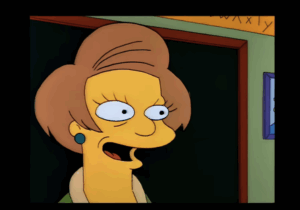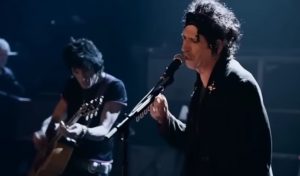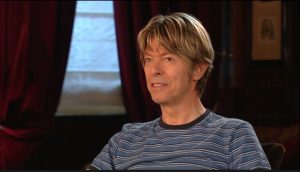10 Eagles Songs That Didn’t Really Soar With Fans

via Eagles / YouTube
Not every song from a legendary band becomes a fan favorite. While the Eagles are celebrated for their iconic hits, not every track struck the right chord. Even with their impressive discography, a few songs failed to resonate with listeners.
Albums like The Long Run (1979), Hell Freezes Over (1994), and Long Road Out of Eden (2007) are home to some of these lesser-loved tracks. Whether due to ambitious experimentation or an overabundance of material, these songs didn’t capture the magic that defined their best work.
However, these rare missteps don’t overshadow the band’s incredible legacy. The Eagles’ ability to craft timeless anthems remains unmatched, even if some tracks missed the mark. Let’s explore 10 Eagles songs that didn’t quite soar with fans.
https://twitter.com/BoredWeb3/status/1384814668498173954
1. “On the Border”, On the Border (1974)
Released in 1974, On the Border marked a pivotal moment for the Eagles as they shifted from their country-rock roots to a harder, rock-oriented sound. While the album featured hits like “Already Gone” and “Best of My Love,” the title track didn’t achieve the same acclaim.
The song aimed to showcase the band’s evolving edge, but its execution felt uninspired. The lyrics lacked depth, and the arrangement fell short of delivering the punch the band seemed to aim for. Compared to the album’s standout tracks, “On the Border” felt like an afterthought.
Despite its shortcomings, On the Border as an album solidified the Eagles’ growth, hinting at the success they’d later achieve with Hotel California. Still, the title track remains one of the lesser-celebrated moments in their catalog.
2. “Frail Grasp of the Big Picture”, Long Road Out of Eden (2007)
Featured on the Eagles’ ambitious two-disc album Long Road Out of Eden (2007), “Frail Grasp of the Big Picture” attempted to blend the band’s classic sound with influences from their 1980s solo ventures. The song incorporates sleek synthesizers and polished production, echoing Don Henley’s Building the Perfect Beast era. However, the fusion feels disjointed rather than innovative.
Lyrically, the track mirrors Henley’s knack for introspection, reminiscent of his solo work like I Can’t Stand Still. Despite its thoughtful themes, the song struggles to find a memorable hook or engaging rhythm. Its attempt at a socially aware groove feels more monotonous than meaningful.
While Long Road Out of Eden showcased the band’s enduring ambition, “Frail Grasp of the Big Picture” highlights the challenges of balancing nostalgia with reinvention. It remains one of the album’s more forgettable entries, lacking the spark fans hoped for.
3. “Chug All Night”, Eagles (1972)
“Chug All Night,” from the Eagles’ self-titled debut album (1972), is a track that doesn’t leave a lasting impression. The song features a repetitive riff that fails to evolve or engage listeners, which detracts from its potential. The lack of dynamic progression in the music makes it one of the weaker moments in the band’s early catalog.
Glenn Frey’s vocals, while earnest, carry a drowsy, almost indifferent tone. His delivery of the line, “And I’ve been meaning to tell you, baby, that it makes no sense,” feels like an apt reflection of the track as a whole. The lyrics, though attempting to convey a sense of longing, ultimately fail to captivate.
Despite its place on the album that helped launch their career, “Chug All Night” remains one of the Eagles’ more forgettable songs. While the band would go on to create timeless classics, this track serves as an early example of the growing pains they would soon overcome.
4. “The Greeks Don’t Want No Freaks”, The Long Run (1979)
Don Henley’s “The Greeks Don’t Want No Freaks” comes from the Eagles’ 1976 album Hotel California, a time when the band was feeling creatively drained. Henley, known for his sharp lyrics and keen observations, draws on his college days in Austin for this track, reflecting on the party culture of the ’60s. However, the song fails to capture the carefree, rebellious spirit of the era it seeks to emulate.
Although inspired by frat-rock bands, the track falls flat in terms of attitude and humor. The lively energy and wit that defined the genre in its heyday are missing, replaced instead by a dry, lackluster tone. Henley’s attempt at creating a fun, light-hearted anthem doesn’t have the punch it needs.
Ultimately, “The Greeks Don’t Want No Freaks” doesn’t stand out as a memorable piece of the Eagles’ vast body of work. While it taps into a specific nostalgia, it lacks the musical vitality or the humorous edge of the era’s true frat-rock classics.
5. “Get Over It”, Hell Freezes Over (1994)
Released in 1994 as part of Hell Freezes Over, “Get Over It” marked the Eagles’ return after a 15-year hiatus. Despite the excitement surrounding their comeback, the track felt like a misstep. Henley’s typically heavy-handed lyrical style took center stage, delivering a message that came across as forced rather than insightful.
The song features a standout slide guitar solo from Joe Walsh, but even this couldn’t lift the track’s overall flatness. The instrumental work, while solid, couldn’t mask the lack of energy or depth in the lyrics. The track’s humorless tone stood in contrast to the more dynamic and engaging music fans were expecting.
Despite its shortcomings, “Get Over It” still made an impact, cracking the Top 40 and showing that the Eagles still had a fanbase. However, the song’s lack of subtlety and genuine emotion made it one of the lesser moments in their comeback album.
6. “Nightingale”, Eagles (1972)
“Nightingale” was added to the Eagles’ On the Border album (1974) after pressure from the record label for another Don Henley vocal track. Originally not intended for the album, the song is a cover of a Jackson Browne tune, and its rushed inclusion is evident throughout. The band struggled to capture the right energy, making the track feel disjointed.
The song’s production lacks the careful polish that defined the album’s better moments. While the band attempted to recreate Browne’s emotional depth, the result falls flat. Henley’s vocals, though capable, do not have the emotional resonance needed to elevate the track.
Despite its forced inclusion, “Nightingale” didn’t leave much of an impact on listeners. While On the Border contained some of the Eagles’ most enduring songs, this cover stands as one of the more forgettable entries in their catalog.
7. “Teenage Jail”, The Long Run (1979)
“Teenage Jail,” a track from the Eagles’ The Long Run (1979), stands as one of the band’s more bewildering moments. With its unfocused lyrics and overly experimental feel, the song fails to hit any meaningful notes. Glenn Frey’s squiggly synthesizer solo adds to the disjointed nature of the track, leaving listeners with little to latch onto.
Ironically, this track ended up as the B-side to “Heartache Tonight,” one of the Eagles’ major hits. The contrast between the two songs highlights the varying approaches within the band’s repertoire at the time. While “Heartache Tonight” became a chart-topper, “Teenage Jail” felt like an awkward, throwaway experiment.
What’s even more surprising is the involvement of J.D. Souther, a key songwriter behind some of the Eagles’ most iconic hits, in this lackluster track. His contribution here feels out of place, and “Teenage Jail” remains a curious and forgettable entry in the band’s otherwise illustrious discography.
8. “I Love to Watch a Woman Dance”, Long Road Out of Eden (2007)
“I Love to Watch a Woman Dance” was a track that had been in the works since the Eagles’ 1990s reunion but was only released on their Hell Freezes Over album in 1994. Written by Larry John McNally, the song was not entirely fresh for Don Henley. He had already recorded McNally’s “The Garden of Allah” for his solo album The End of the Innocence, making this track feel like a retread of his earlier work.
The song’s lyrics, while attempting to explore similar themes, fail to offer anything new or compelling. The music lacks the innovation and impact that Henley’s solo efforts had achieved, making it feel like a recycled version rather than a fresh addition to the Eagles’ catalog. The track struggles to stand out among the other songs on Hell Freezes Over.
Despite the anticipation surrounding the album’s release, “I Love to Watch a Woman Dance” failed to make a significant mark. With its uninspired execution, it felt like a missed opportunity for the band to explore new musical territory.
9. “The Disco Strangler”, The Long Run (1979)
“The Disco Strangler” from The Long Run (1979) is a collaboration between Glenn Frey, Don Henley, and Don Felder that falls flat. The track attempts to blend Henley’s usual cynical lyrics with a disco-influenced bass line, which feels out of place for the band. The result is a clash of styles that does little to enhance the song’s overall impact.
Henley’s typically judgmental tone, evident throughout the song, doesn’t match the danceable rhythm they tried to incorporate. The repetitive riff and lack of nuance in the lyrics make the song feel painfully obvious and humorless. There’s little to grab onto here, and the track struggles to maintain listener interest.
Despite the star power behind it, “The Disco Strangler” is largely forgotten amongst many Eagles songs. The song’s mismatched elements and uninspired execution make it one of the more regrettable moments in their discography, offering little to justify its place on the album.
10. “I Wish You Peace”, One of These Nights (1975)
“I Wish You Peace” from On the Border (1974) marked a significant shift for Bernie Leadon, co-writing the track with Patti Davis, the daughter of Ronald Reagan. Known for his rootsy background with the Flying Burrito Brothers, Leadon’s musical style didn’t quite align with the song’s slow, mellow tone.
The song received little acclaim, with Don Henley famously dismissing it as “smarmy cocktail music.” The mellow, somewhat sentimental vibe didn’t resonate with many fans, especially considering Leadon’s earlier contributions, which were much more rooted in Americana and rock.
For Leadon, “I Wish You Peace” ultimately marked a lackluster exit from the band. It didn’t serve as a fitting farewell for someone who had been integral to the Eagles’ early sound, leaving a disappointing note for his departure.





















